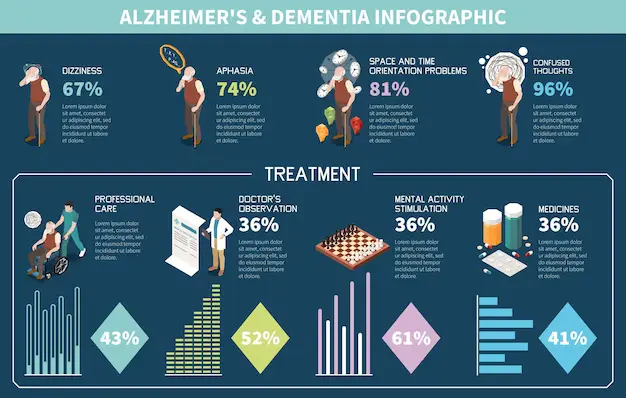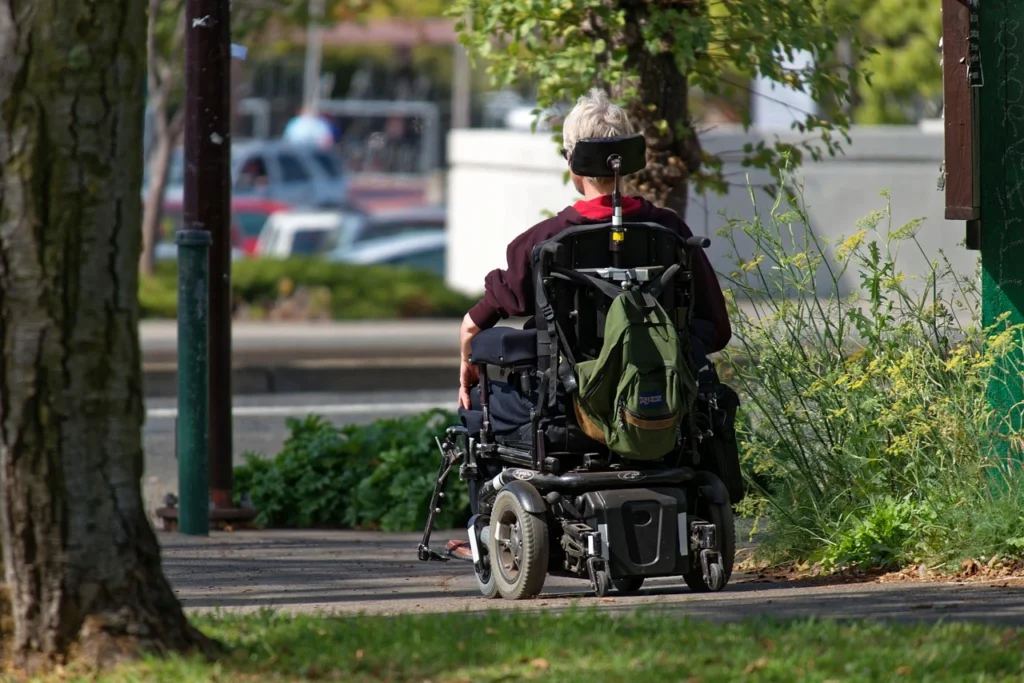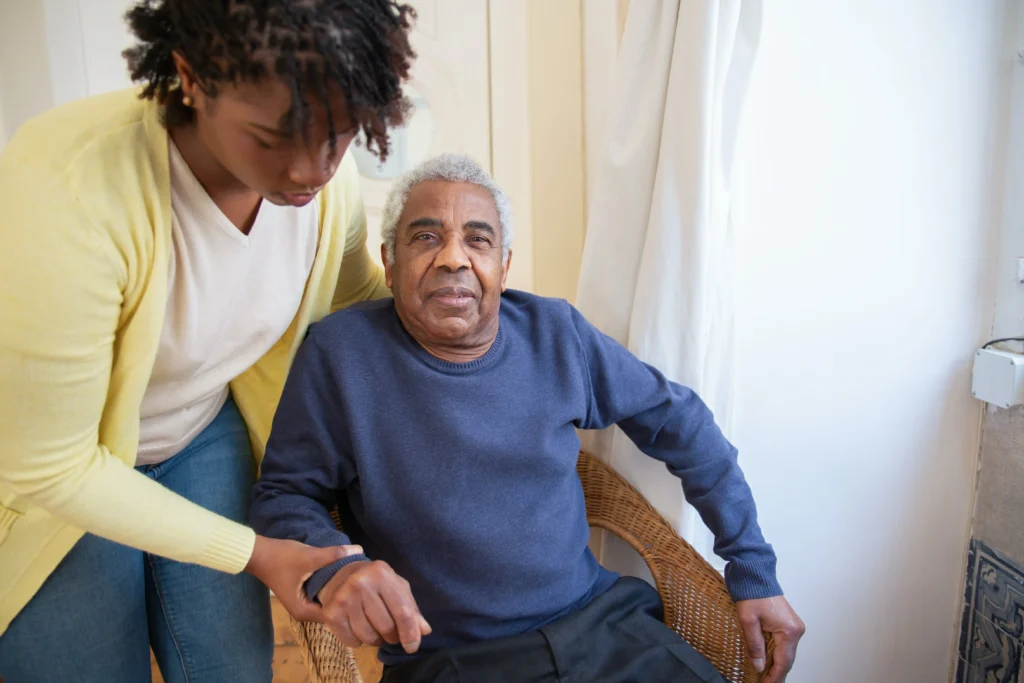Discover Alzheimer and Dementia: Facts, Symptoms, and Treatment

- What is Dementia?
- Types of Dementia
- Early Signs and Symptoms of Alzheimer
- Understanding the Differences Between Dementia and Alzheimer’s Disease
- Bruce Willis and His Personal Experience with Dementia
- Treatment Options for Alzheimer
- Living with Alzheimer or Dementia – Coping Strategies and Support
- Alzheimer’s and Dementia Care: Essential Tips for Caregivers
- Promising Research and Advancements in Dementia Treatment
- Conclusion
- Frequently Asked Questions (FAQs)
This post may contain affiliate links, meaning I may earn a commission if you make a purchase, at no extra cost to you. I only recommend products I trust. Thank you for your support.
Dementia is a condition that affects millions of people worldwide. It is a progressive neurological disorder that impairs cognitive function and memory. In this article, we will explore the different types of dementia, early signs and symptoms, the difference between dementia and Alzheimer’s disease, treatment options, and strategies for living with dementia. We will also discuss the personal experience of actor Bruce Willis with dementia, as well as promising research and advancements in dementia treatment. If you are interested in learning more about dementia, its symptoms, and treatment options, keep reading.
What is Dementia?
Dementia is a general term used to describe a decline in cognitive abilities that are severe enough to interfere with daily life. It is not a specific disease but rather a syndrome that encompasses a range of symptoms. Dementia is caused by damage to brain cells, which affects the communication between brain regions. The most common symptoms of dementia include memory loss, difficulty with problem-solving, confusion, and changes in behavior and mood.
Types of Dementia
There are several types of dementia, each with its own unique characteristics and causes. The most common types of dementia include:
Alzheimer’s Disease
Alzheimer’s disease is the most common form of dementia, accounting for approximately 60-80% of cases. It is characterized by the accumulation of amyloid plaques and tau tangles in the brain, which disrupt the normal functioning of neurons. Alzheimer’s disease typically begins with mild memory loss and progresses to severe cognitive impairment.
Vascular Dementia
Vascular dementia is the second most common type of dementia. It is caused by reduced blood flow to the brain, often as a result of a stroke or other cardiovascular problems. The symptoms of vascular dementia can vary depending on the location of the brain damage and may include difficulties with memory, reasoning, and communication.
Lewy Body Dementia
Lewy body dementia is characterized by the presence of abnormal protein deposits, called Lewy bodies, in the brain. This type of dementia can cause a range of symptoms, including cognitive impairment, hallucinations, and fluctuations in alertness and attention. Lewy body dementia is often difficult to diagnose accurately.
Frontotemporal Dementia
Frontotemporal dementia affects the frontal and temporal lobes of the brain, leading to changes in behavior, personality, and language. This type of dementia often occurs at a younger age compared to other types and can have a significant impact on daily functioning.
Early Signs and Symptoms of Alzheimer
Alzheimer’s disease is a progressive neurodegenerative disorder that primarily affects the brain, leading to a decline in cognitive functions such as memory, thinking, and behavior. It is the most common cause of dementia.
Key features of Alzheimer’s disease include:
- Memory Loss: One of the hallmark symptoms of Alzheimer is the gradual loss of short-term and, eventually, long-term memory.
- Cognitive Decline: Individuals with Alzheimer’s experience difficulties in reasoning, problem-solving, and decision-making.
- Behavioral Changes: The disease often results in changes in behavior, mood swings, and personality alterations.
- Communication Challenges: As the disease progresses, individuals may struggle with language, finding it hard to express themselves or understand others.
- Difficulty Performing Familiar Tasks: Tasks that were once routine may become challenging as the disease affects the ability to plan and execute activities.
- Impaired Judgment: Individuals may exhibit poor judgment and have difficulty making sound decisions.
- Confusion and Disorientation: Alzheimer’s can lead to confusion about time, place, and even the identity of people.
- Problems with Motor Functions: In later stages, individuals may experience difficulties with coordination and basic motor functions.
The exact cause of Alzheimer’s is not fully understood, but it involves the accumulation of abnormal protein deposits, such as beta-amyloid plaques and tau tangles, in the brain. There is currently no cure for Alzheimer’s disease, and treatment mainly focuses on managing symptoms and providing support for affected individuals and their caregivers.
If you or a loved one experience any of these symptoms, it is important to seek medical attention for a proper diagnosis and treatment plan.
Understanding the Differences Between Dementia and Alzheimer’s Disease
Dementia and Alzheimer’s disease are often used interchangeably, but they are not the same. Dementia is a general term that refers to a decline in cognitive function, while Alzheimer’s disease is a specific type of dementia. Alzheimer’s disease is characterized by the presence of amyloid plaques and tau tangles in the brain, whereas other types of dementia may have different underlying causes.
Bruce Willis and His Personal Experience with Dementia
Even celebrities are not immune to the effects of dementia. Actor Bruce Willis has been open about his personal experience with dementia in his family. He has spoken about the challenges of caring for loved ones with dementia and the importance of raising awareness about the disease. Willis has become an advocate for dementia research and support, using his platform to educate others about the impact of the condition.
Treatment Options for Alzheimer

While there is currently no cure for dementia, there are treatment options available to manage symptoms and improve quality of life. The treatment approach may vary depending on the type and severity of dementia. Some common treatment options include:
- Medications: Certain medications can help manage cognitive symptoms and improve memory and thinking skills.
- Therapy: Occupational therapy, speech therapy, and cognitive training can help individuals with dementia maintain their independence and improve communication skills.
- Lifestyle changes: Regular physical exercise, a healthy diet, and social engagement can help slow the progression of dementia and improve overall well-being.
- Supportive care: Creating a safe and supportive environment for individuals with dementia is crucial. This may involve making modifications to the home, providing assistance with daily activities, and ensuring access to social support networks.
Living with Alzheimer or Dementia – Coping Strategies and Support
Living with dementia can be challenging, both for individuals with the condition and their caregivers. However, there are coping strategies and support systems that can make the journey more manageable. Some strategies for living with dementia include:
- Establishing routines: Maintaining a daily routine can provide structure and help reduce anxiety and confusion.
- Providing a supportive environment: Creating a calm and familiar environment can help individuals with dementia feel more secure and at ease.
- Seeking support: Joining support groups or seeking counseling can provide emotional support and valuable advice for both individuals with dementia and their caregivers.
- Taking care of physical and mental health: Engaging in regular physical exercise, eating a nutritious diet, and participating in mentally stimulating activities can help maintain overall well-being.
Alzheimer’s and Dementia Care: Essential Tips for Caregivers
Caring for a loved one with Alzheimer’s demands a multifaceted approach, and seeking professional support is crucial. Certified Dementia Practitioners (CDPs) are specialized professionals extensively trained in dementia care. These experts bring a wealth of knowledge about the nuances of Alzheimer’s disease, its progression, and effective caregiving strategies.

Consider consulting a CDP to create a personalized care plan tailored to your loved one’s unique needs. These practitioners are adept at implementing person-centered care, taking into account the individual’s life history, preferences, and current abilities. Their expertise extends beyond the immediate caregiving environment; CDPs can also provide valuable education and support for family members, equipping them with the skills needed to navigate the challenges of Alzheimer’s caregiving.
Integrating a CDP into your caregiving journey can enhance the overall quality of care and contribute to a more compassionate and informed approach to managing Alzheimer’s disease.
Other major resources for dementia caregivers include:
- Alzheimer’s Association: This organization provides information, support groups, and resources for individuals affected by dementia.
- Local support groups and Alzheimer’s organizations: Many communities have support groups specifically for caregivers of individuals with dementia. These groups offer a safe space to share experiences and gain support from others who are going through similar situations.
- Respite care services: Respite care services provide temporary relief for caregivers by offering professional caregiving services for a short period. This allows caregivers to take a break and recharge.
As a caregiver, understanding and implementing effective strategies is crucial for providing the best possible care. Here are some essential tips to guide you through the process:
Establish a Routine
Creating a consistent daily routine helps provide structure and predictability for individuals with Alzheimer’s. Regular schedules for meals, activities, and rest contribute to a sense of security.
Foster a Safe Environment
Ensure the home environment is safe by removing potential hazards, such as tripping hazards and sharp objects. Consider installing safety measures like handrails and locks on cabinets to prevent accidents.
Effective Communication
Maintain clear and simple communication. Use a calm and reassuring tone, and be patient. Simplify instructions and ask questions that can be answered with a “yes” or “no” to enhance understanding.
Provide Cognitive Stimulation
Engage the individual in activities that stimulate cognitive functions, such as puzzles, games, or reminiscing about past experiences. These activities can help maintain mental acuity and provide a sense of accomplishment.
Take Care of Yourself
Caring for someone with Alzheimer’s can be emotionally and physically demanding. Prioritize self-care to prevent burnout. Seek support from friends, family, or support groups, and consider respite care to allow for personal time.
Monitor Health and Medications
Keep track of the individual’s health, attend medical appointments, and ensure medications are taken as prescribed. Regular health check-ups can help identify and address any issues promptly.
Be Flexible and Patient
Flexibility is essential when caring for someone with Alzheimer’s, as behavior and abilities can change. Patience is key, especially in challenging situations. Take breaks when needed, and approach each day with a positive mindset.
Legal and Financial Planning
Address legal and financial matters early on, such as creating a power of attorney and establishing a clear financial plan. This ensures that the individual’s affairs are in order and reduces stress in the long run.
Caring for a loved one with Alzheimer’s requires dedication, understanding, and compassion. By incorporating these tips into your caregiving routine, you can enhance the quality of life for both the individual with Alzheimer’s and yourself as the caregiver. Are you looking to hire an experienced and compassionate caregiver, feel free to contact me or by email.
Promising Research and Advancements in Dementia Treatment
Researchers are continually working to better understand dementia and develop more effective treatment options. Some promising areas of research include:
- Drug development: Scientists are studying new medications that target the underlying causes of Alzheimer, such as amyloid plaques and tau tangles.
- Non-pharmacological interventions: Research is exploring the effectiveness of non-drug interventions, such as music therapy, art therapy, and virtual reality, in improving cognitive function and quality of life for individuals with dementia.
- Early detection methods: Researchers are developing new methods for early detection and diagnosis of dementia, which can lead to earlier intervention and improved outcomes.
Conclusion
Dementia or Alzheimer is a complex and challenging condition that affects millions of people worldwide. Understanding the different types of dementia, recognizing the early signs and symptoms, and seeking appropriate treatment and support are crucial for individuals with dementia and their caregivers.
While there is currently no cure for dementia, advancements in research and treatment offer hope for improved outcomes in the future. By raising awareness and providing support, we can make a difference in the lives of those affected by dementia.
These articles can help you enhance your knowledge about respite care for caregivers, comfort care or palliative care, hospice care, spastic quadriplegia cerebral palsy, and caring for stroke patients.
I strongly suggest you take some time to read these 10 proven cognitive stimulation therapy activities for mental agility.
Note: This article is intended for informational purposes only and should not be taken as medical advice. It is always recommended to consult with a healthcare professional for personalized guidance and treatment.
Frequently Asked Questions (FAQs)
What’s the difference between Alzheimer’s and dementia?
Alzheimer’s is a specific type of dementia. Dementia is an umbrella term for cognitive symptoms, while Alzheimer’s is the most common cause. Not all dementia cases are Alzheimer’s; other types include vascular and frontotemporal dementia.
Which is worse, dementia or Alzheimer’s?
Comparing dementia and Alzheimer in terms of severity is complex. Alzheimer is a type of dementia, and the progression varies. Severity depends on the specific type of dementia, with each case unique.
How to prevent dementia?
No guaranteed prevention exists, but a healthy lifestyle helps. A balanced diet, regular exercise, mental stimulation, social engagement, quality sleep, and managing chronic conditions may reduce the risk.
How to prevent Alzheimer?
Prevent Alzheimer’s with a healthy lifestyle: balanced diet, regular exercise, mental stimulation, social engagement, quality sleep, and managing chronic conditions. Limit alcohol and avoid smoking.
How is dementia diagnosed?
Alzheimer diagnosis includes medical history, physical exam, cognitive testing, blood tests, brain imaging (MRI/CT), neuropsychological testing, and genetic testing when needed.




